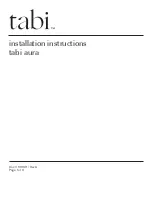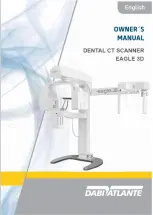
Command Descriptions
2–148
TDS Family Oscilloscope Programmer Manual
<file path>
FILEName
:
HARDCopy
?
<Space>
<file path>
specifies that the hardcopy is sent to the named file.
<file path>
is a quoted string that defines the file name and path. Input the file path using the
form
<drive>/<dir>/<filename>
.
<drive>
and one or more
<dir>
s are
optional. If you do not specify them, the TDS will write the file to the current
directory.
<filename>
stands for a filename of up to 8 characters followed by a
period (“.”) and any 3-character extension.
The current directory refers to the name of a directory as returned by the
FILESystem:CWD query.
You can automatically create different names for files. You do this by using the
question mark (?) as a special wildcard character. These stand for numbers the
TDS will insert sequentially in the filename. For example, if you placed two
question marks at the end of the filename then the oscilloscope would append 00
to the first file created, 01 to the next, and 02 to the next. This helps you
automatically create different names for files. It is particularly useful in
automated testing situations.
HARDCOPY:FILENAME
TEK.IBM"
selects
TEK.IBM
as the selected file name.
HARDCOPY:FILENAME?
might return
TEK.IBM
as the selected file name.
HARDCOPY:FILENAME TEK??.IBM"
selects
TEK
as the selected file name with a numeric, two-digit suffix. The TDS
might return
TEK00.IBM
as the first file,
TEK01.IBM
as the second.
HARDCopy:FORMat
Selects the output data format for hardcopies. This is equivalent to setting
Format in the Hardcopy menu.
Hardcopy
HARDCopy:FORMat { BMP | BMPCOLOR
(not on TDS 400A & 510A)
|
DESKJET | DESKJETC
(not on TDS 400A & 510A)
| DPU411 | DPU412 |
EPSCOLImg
(not on TDS 400A & 510A)
| EPSColor | EPSImage | EPSMono
| EPSOn | HPGl | INTERLeaf | LASERJet | PCX | PCXCOLOR
(not on TDS
400A & 510A)
| RLE
(not on TDS 400A & 510A)
| THInkjet | TIFf }
Examples
Group
Syntax
















































